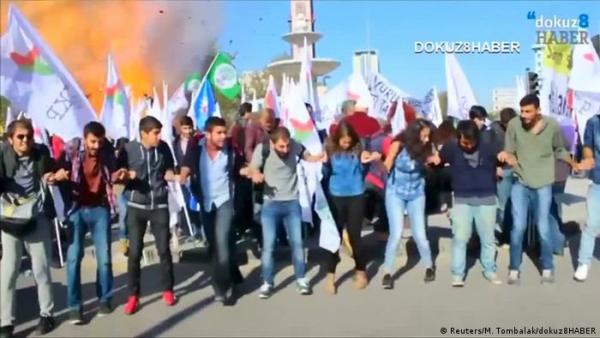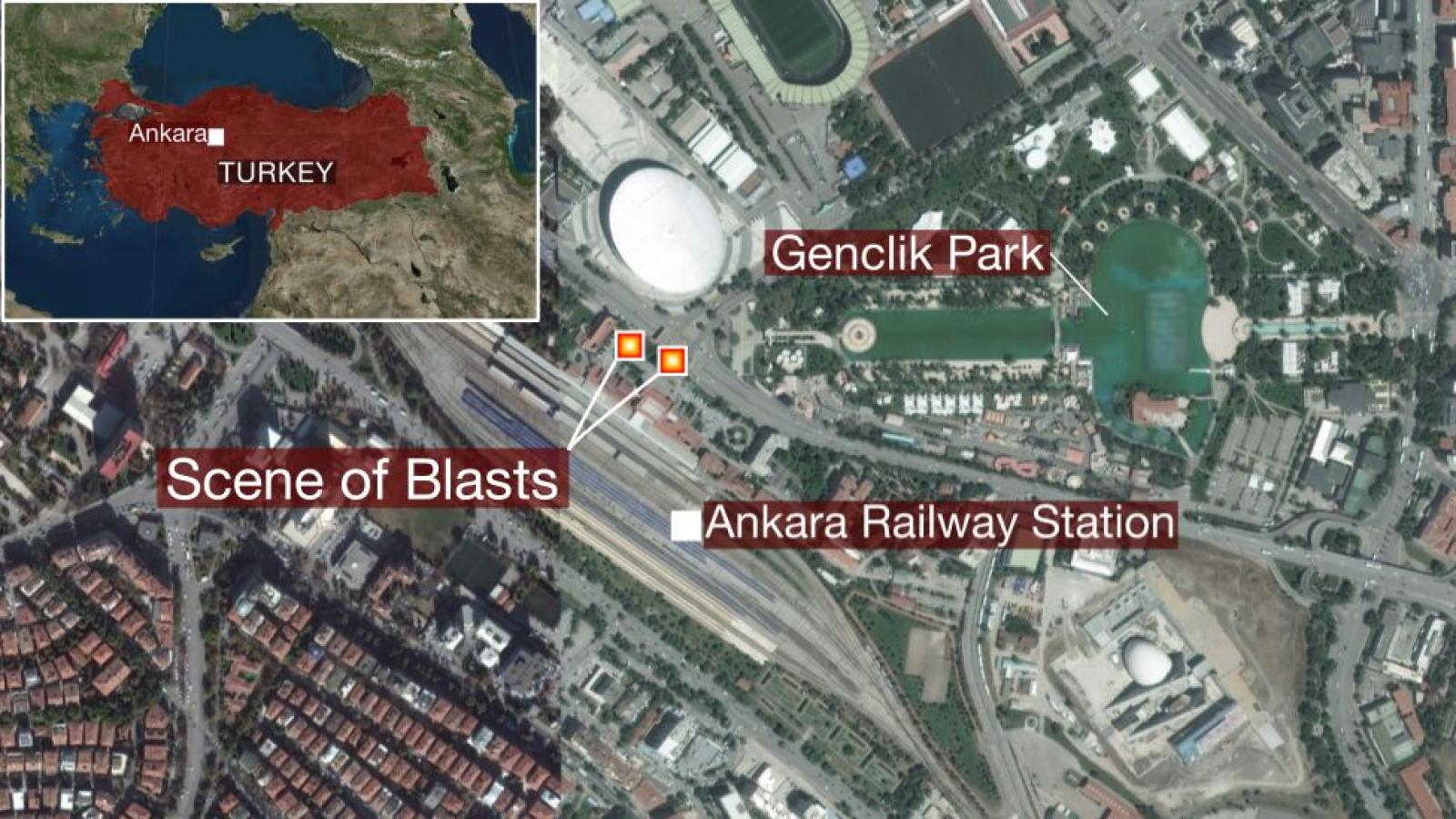Ankara Station Massacre
In Turkey, 2015 witnessed the collapse of the peace process between the Turkish government and the Kurdish political movement, which had started in 2013. In 2015-16, consecutive bomb attacks targeted civilians in public spaces and intense clashes broke out in several provinces and districts of the Kurdish region, resulting in hundreds of casualties.
The Peace Process greatly raised the expectations and hope that the Kurdish issue can be settled by peaceful means. To protest the abrupt ending of the process, trade-unions and professional organizations called for a “Labor, Peace and Democracy Meeting” in Ankara, on October 10, 2015. Many culture and arts associations, political parties and non-governmental organizations decided to join the peace meeting. Two consecutive explosions were heard as people were gathering in front of the Ankara Train Station to join the meeting. 103 people lost their lives, 391 people were injured, making it the deadliest attack in Turkey’s history.
The first indictment for the attack was confirmed on July 13, 2016. The indictment stated attributed the attack to ISIS and stated that the accused were also responsible for the Suruç bombing, on July 20th, 2015, where 33 people lost their lives. In August 2018, the last hearing of the case was held and 19 defendants were convicted with sentences ranging from 7 and a half years imprisonment to 101 aggravated life sentences.
As for the other terror attacks that took place in these years, the role of the state was also questioned following the massacre. Opposition media published allegations that the Ankara Province Police Directorate had failed to take due precautions before the meeting, despite receiving intelligence information about a possible bombing attack. Victims and witnesses also told the media that the police began using tear gas shortly after the bombs went off, while stopping ambulances from getting through. No legal procedure was launched to investigate possible failures of the security forces before and after the bombing.
Since 2015, effort to commemorate the October 10 massacre have faced different challenges. Except in 2019, commemorations of October 10 in front of Ankara Station were banned and police used tear gas to prevent participants from gathering. Memorialization attempts on trees were also regularly removed. After a long delay, the Station Square, renamed as Democracy Square, should be redesigned in 2022, with 101 memorial trees commemorating the victims.

Images
